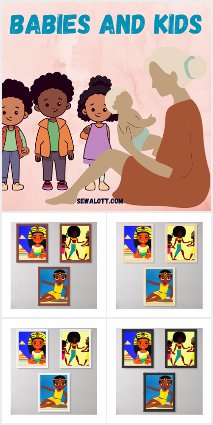The Freedom Legacy Collection: A Powerful Three-Book Tribute to History, Culture, and Celebration
Discover The Freedom Legacy Collection — a powerful, thought-provoking three-book set that celebrates Black history, cultural pride, and the enduring spirit of liberation. Created by Hank Gray, this meaningful collection brings together history, poetry, and culinary tradition to offer a deeply emotional and educational journey through African heritage and the legacy of freedom. Perfect for families, educators, cultural programs, and meaningful gift-giving, this three-book set honors the past while inspiring the future.
At the heart of this collection is The Juneteenth Dessert Cookbook, a joyful celebration of heritage through irresistible dessert recipes inspired by African American tradition. Juneteenth is more than a holiday, it is a celebration of freedom, resilience, and culture passed down through generations. This cookbook brings that celebration to life through comforting classics and festive treats designed for family gatherings, holidays, and community events. Each recipe tells a story, reflecting how food has always played a central role in preserving culture, honoring the past, and celebrating freedom.
Inside this cookbook, readers will discover dessert recipes inspired by African American culture and tradition, sweet treats perfect for Juneteenth celebrations and family gatherings, and easy-to-follow instructions suitable for home bakers of all skill levels. More than a collection of recipes, this book offers a meaningful way to connect food, history, and remembrance, creating opportunities to bring people together around shared traditions. Whether hosting a Juneteenth gathering or simply adding culturally inspired desserts to your kitchen, this cookbook offers recipes worth sharing.
Complementing the cookbook is A Reminder of Our Freedom, a moving collection of Juneteenth poems that brings history to life through powerful and heartfelt verse. This book honors the people, places, and events that shaped the journey from bondage to liberation. With a variety of poem styles and lengths, it includes accessible poems for children, reflective pieces for students, and deeper poetic storytelling for adults. The poems encourage reflection, education, and emotional connection, making this book an invaluable resource for classrooms, families, and community programs alike.
Completing the collection is Mankind, Made in Africa, a powerful memoir-style narrative written as if Africa itself were speaking to its descendants scattered around the world. From an African American perspective, this deeply imaginative work explores identity, resilience, belonging, and cultural legacy. The book acknowledges the struggles, triumphs, and complexities faced by people of African descent while delivering a message of unity, acceptance, and spiritual homecoming. It reminds readers that if humanity began in Africa, then everyone would be welcomed home, and that Africa’s arms remain forever open.
Together, these three books offer a rich, emotional, and educational experience that nourishes both the mind and the soul. From dessert traditions rooted in celebration, to poetic reflections on freedom, to deep insights into African heritage, each book builds upon the next to create a fuller understanding of Black identity, perseverance, and triumph. This carefully curated set blends history, culture, creativity, and reflection into one unforgettable journey.
Perfect for families, educators, classrooms, cultural programs, and thoughtful gift-giving, The Freedom Legacy Collection is designed to inspire learning, pride, and connection. Whether celebrating Juneteenth, exploring African heritage, teaching cultural history, or seeking meaningful reading and dessert-cooking gifts, this collection offers lasting value, beauty, and purpose. It stands as a powerful tribute to the past, a celebration of the present, and a hopeful vision for the future.
Celebrate Freedom, Flavor, and Tradition — One Dessert at a Time.
Explore The Freedom Legacy Collection and begin a journey of remembrance, reflection, and pride:

.png)

.png)

.png)


.png)


